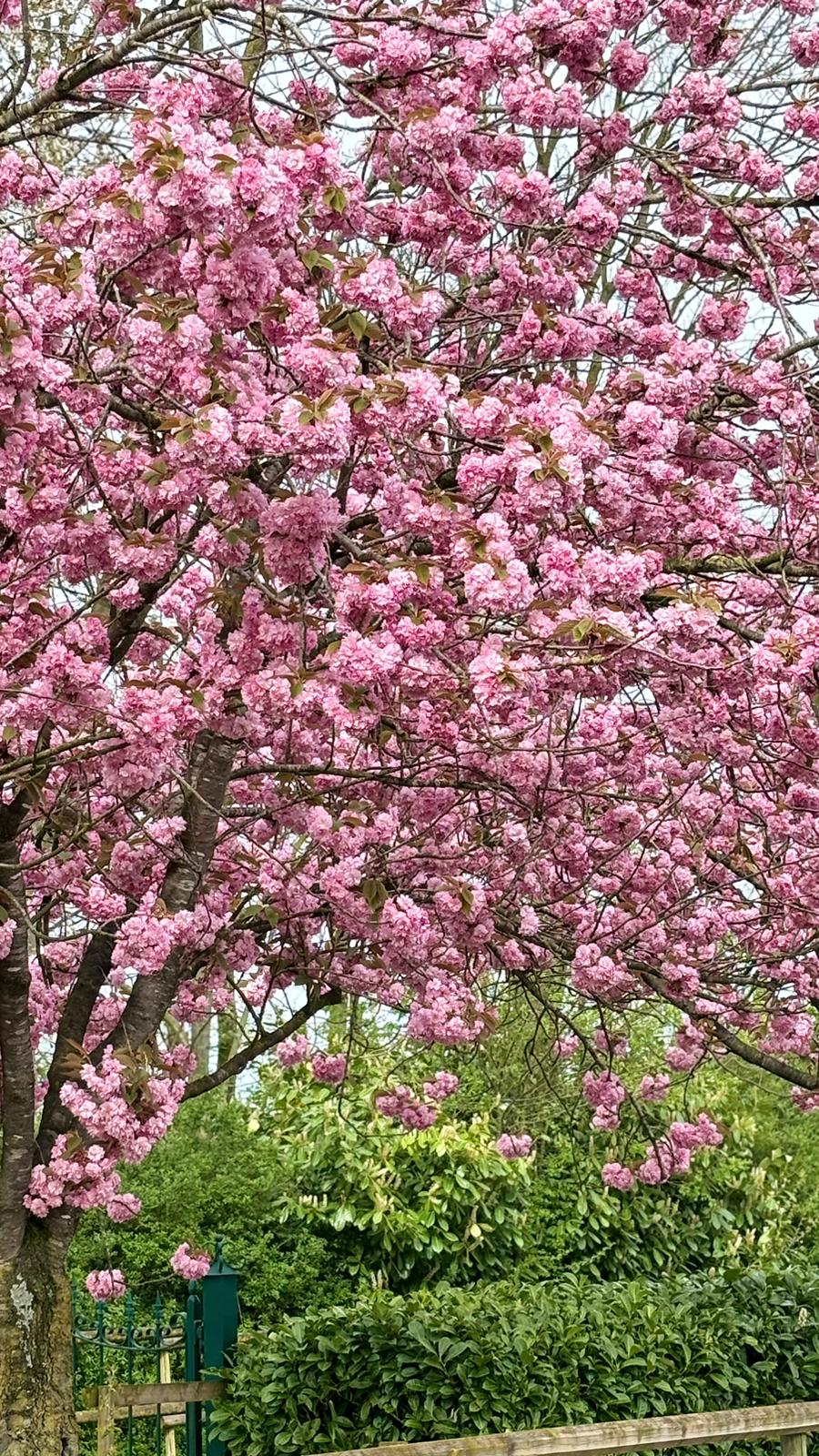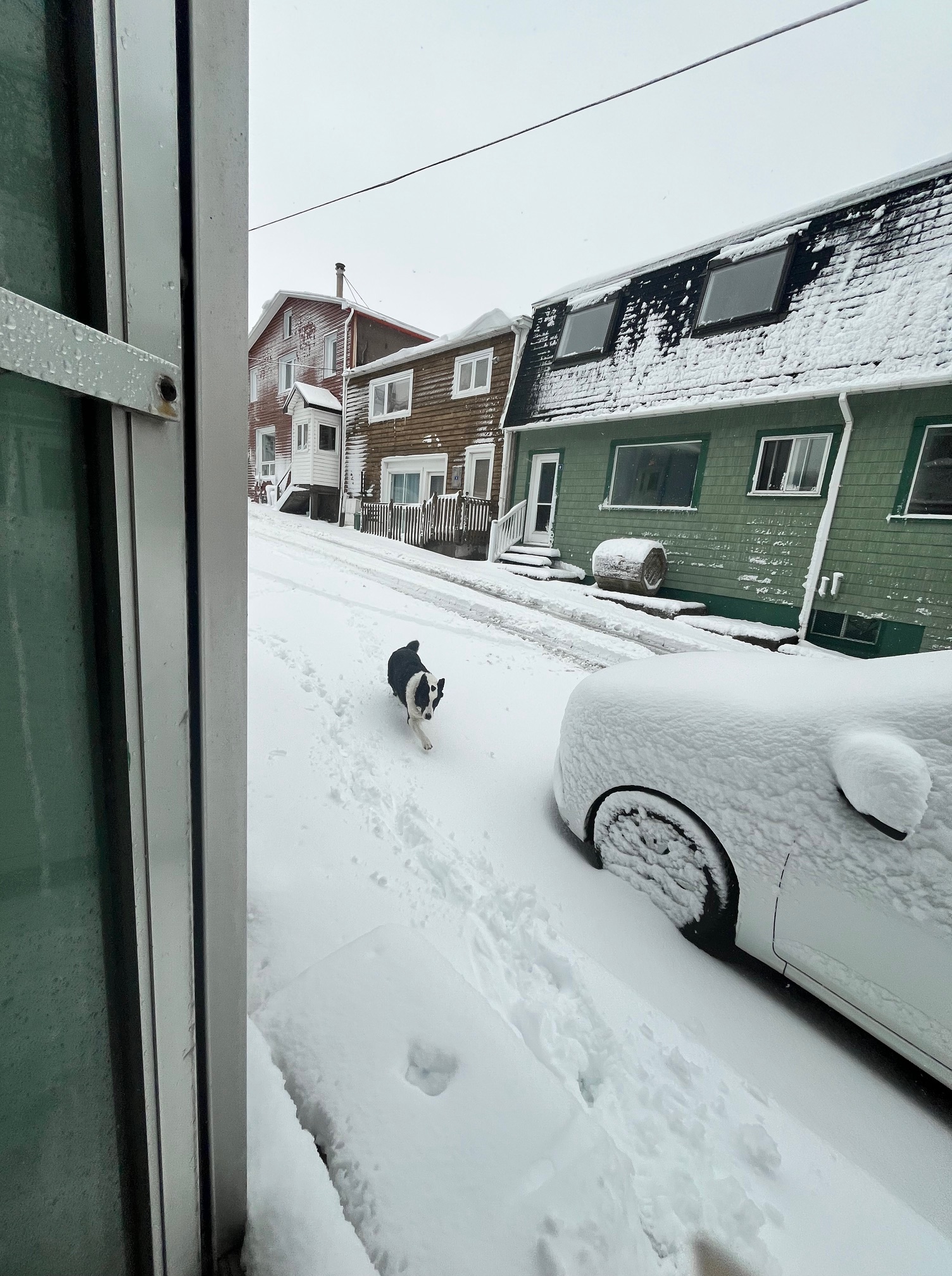
Living on a rock in the North Atlantic teaches you it’s own lessons. Just last week my friends in Germany were sending me glorious photos of the cherry blossom and we were experiencing a dump of 20cm of snow. I’d managed to photograph the first emerging snowdrops just a few days previously (Easter Sunday, in fact) or I’d have been forgiven for thinking that we are caught in some kind of eternal winter.



Forget ‘winter is coming’, at a certain point here in SPM we should be forgiven for thinking that winter will never end. That got me thinking about how so often things just seem to take so damn long to happen and why it’s so hard to wait.
Can you believe that there’s even a Law about how long things take? Created by a guy called Douglas Hofsteder, an American scientist whose research areas include concepts such as the sense of self in relation to the external world, consciousness, analogy making, strange loops, artificial intelligence and discovery in maths and physics. Heavy stuff, right? In 1979 he won both the Pulitzer Prize and a National Book Award for science for his book Gödel, Escher, Bach: An Eternal Golden Braid, in which he states his law:
“It always takes longer than you expect, even when you take into account Hofsteder’s Law”.
I’d like to make my own addition to that law, which would be that “It always takes longer than you expect, even when you take into account Hofsteder’s Law, by direct proportion of how badly you want it to happen”.
Wanting something to happen is a core part of attachment, the fundamental human emotional connection or bond one develops with people, objects, ideas or even a sense of self. It arises from our desire to feel secure, comfortable and in control of our lives.
From the Buddhist perspective, attachment or upādāna is grasping, or clinging – to people or things in the mistaken belief that they will bring us lasting happiness and fulfillment. Being unable to let go of our attachments leads to suffering – not only do you suffer while waiting to fulfil your desires but since the objects of our attachment are inherently impermanent and subject to change the temporary pleasure or satisfaction that they provide (when we have them, finally) ultimately leads to suffering and dissatisfaction as the goal posts inevitably move.
Additionally of course the more we cling to things, people, and experiences, the more we suffer when they inevitably change or disappear. There is of course a solution – cultivating non-attachment. This allows us to break free from the cycle of craving and suffering, allowing us to live with greater freedom, equanimity and compassion.
Practicing non-attachment doesn’t mean abandoning your worldly goods and taking off with shaven head and a begging bowl, though that may be the Buddhist ideal. Far from it, non-attachment is the other side of the same coin as mindfulness or anchoring oneself in the present. What if I was to stop worrying about when spring was going to come and instead focused on the fact that it’s a gorgeous sunny day today with no wind and we are going to have a wonderful walk out on the headland overlooking the blue blue of the North Atlantic, peaceful today with the seals basking on the island below the cliff? Where, if I stop obsessing about when it’s going to get warmer I can actually experience a few minutes (always too short!) of absolute joy in the beauty of these actual surroundings?
Instead of being miserable projecting myself into the future and envying other people in some other place what if I take the time to actually relish being here and now and finding something that I can appreciate, here and now?
Bizarrely, it makes both Hofsteder’s Law and my own addition irrelevant. When it doesn’t really matter how long it takes – because after all it’s going to happen and your focusing all your hopes fears and dreams on WHEN it’s going to happen isn’t going to change that, except for your own peace of mind – suddenly you have far more acceptance, far less attachment and indeed far more happiness.
So I’m going to take the dog for that walk, and you think about what you can do to choose more happiness right now here today. And if you need help with that, get in touch http://www.clarazawawicoaching.com.




Another Lovely read from our very own Clara Zawawi.
Such wonderful words of Wisdom, from one who has lived her life to the full and continues to do so.
Merci beaucoup.
LikeLiked by 2 people